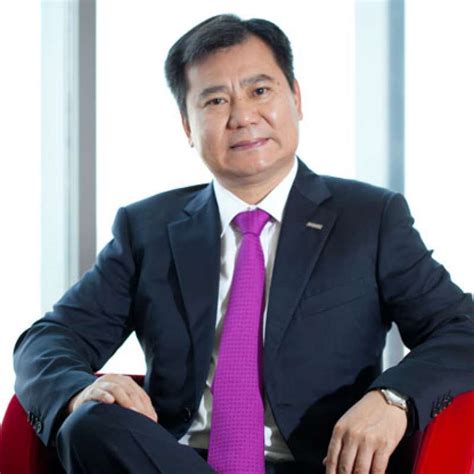A Quote by Zhang Jindong
Best Buy is just too Western! They do not stock enough Chinese brands, and Chinese people do not want to buy foreign brands.
Related Quotes
There was a shop in Birmingham called Autographs, where I'm from in Birmingham. My uncles and dad used to shop there. They played professionally, too. When I started, I went to Autograph, and they had brands like Rick Owens. There are loads of brands, like my go-to brands that I will go to if I want to buy jeans, like DSquared or Balmain.
If the Chinese economy can be opened so that currencies are convertible, Chinese tourists can take money and go see the world. Chinese businessmen can go and buy property in the U.S. and France and every place. All of a sudden, it's just going to be a blossoming global economy. I think it's going to be good for everybody.
At the end of the day, people (customers) don't necessarily buy into what you do; they buy into why you do it. People buy Apple because they love the Apple brand - what it stands for - they feel proud to be associated with that brand. What makes Google or Virgin or any of these 'superior' brands what they are is that they have a mission to change the world. Those are the kinds of companies that will endure the test of time.
Buy products of genuine lasting value from brands that take their manufacturing seriously. I have things that are 75 years old, like the dinner suit of my grandfather's that was made in 1933 by a tailor in Edinburgh. Clothes develop stories. You can remember where you've been through clothing that you've worn. I want products that are going to endure. I hate that we buy things that are disposable. We need to buy products with integrity.
A lot of Americans desperately want to believe that China is full of poor people who can't innovate, and the only goods they make are cheap, toxic rip-offs our Western brands. They want to believe the only reason the Chinese economy is surging is because the West wants cheap goods and China knows how to make them that way.
The Chinese concept of rights arose, then, in a context of power. Western nations had become powerful enough, and imposed their will in nakedly aggressive fashion, so that they had to be addressed in their terms. Eventually rights in Chinese thought are attributed not just to nation states but also to individual people.

































